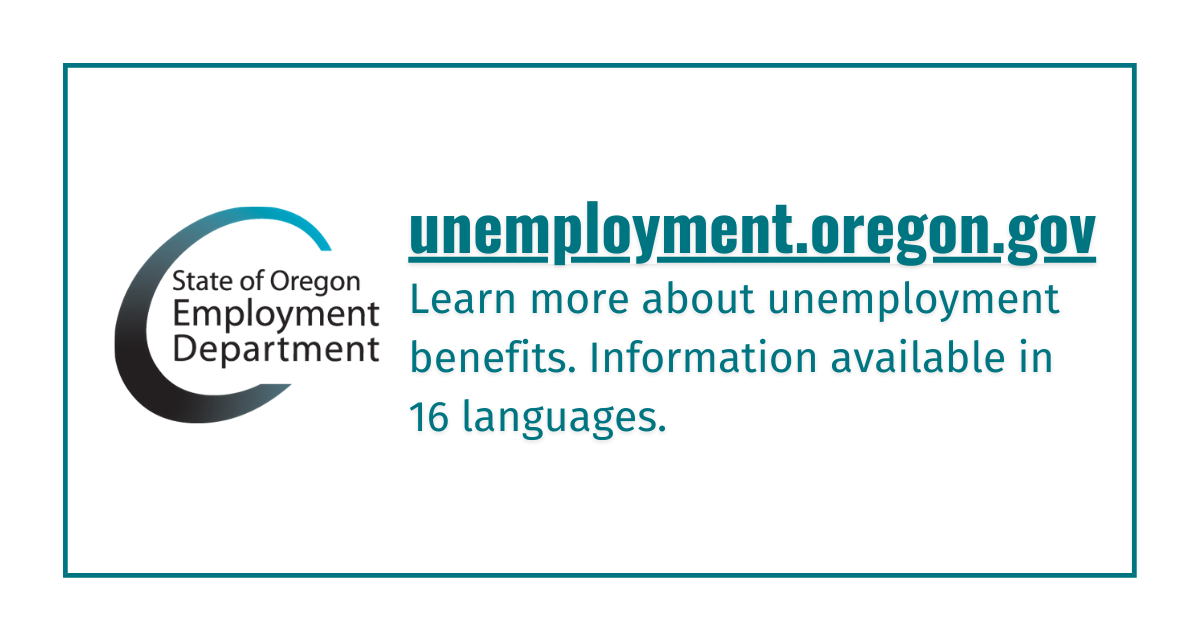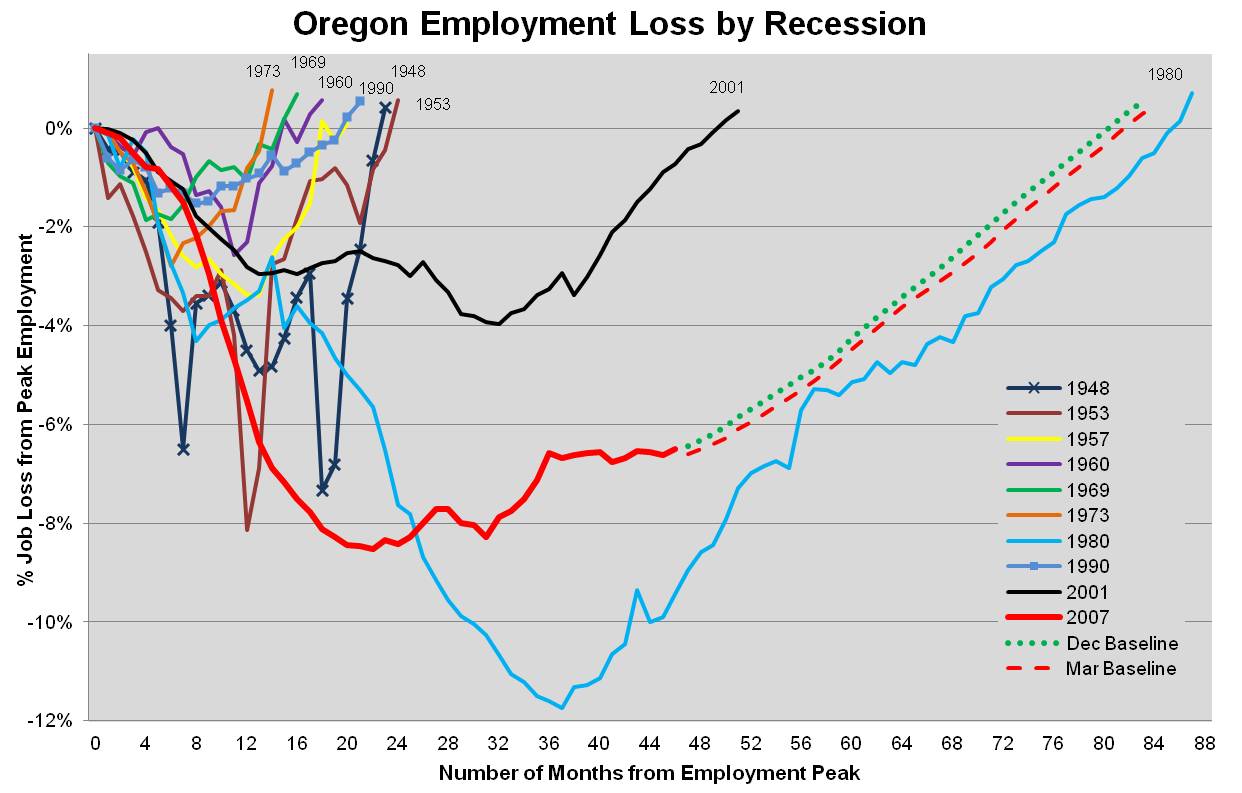Online unemployment in Oregon has become a buzzword in recent years, capturing the attention of policymakers, job seekers, and economists alike. The digital age has reshaped the way we work, but it’s also brought challenges that many weren’t prepared for. If you’ve ever wondered how the online economy impacts joblessness in Oregon, you’re in the right place. This article will break it down for you, straight and simple.
Picture this: You’re scrolling through job listings online, hoping to land that dream gig. But wait—what’s this? The competition’s fierce, and the job market feels like a rollercoaster. That’s the reality many Oregonians face today. Online unemployment isn’t just about losing a job; it’s about navigating an ever-changing digital landscape where opportunities and challenges collide.
So, why does this matter? Because understanding the dynamics of online unemployment in Oregon can help you make smarter decisions, whether you’re a job seeker, a business owner, or just someone curious about the state’s economic pulse. Let’s dive in and uncover the truth behind the numbers.
Read also:Unveiling The Mysteries Of The Chinese Horoscope For 1985 Insights And Predictions
Understanding Online Unemployment in Oregon
Let’s start with the basics. Online unemployment refers to the state of joblessness that’s influenced by digital factors. In Oregon, this can mean anything from automation replacing manual labor to remote work opportunities being out of reach for some residents. It’s a complex issue, but it’s one that affects real people in real ways.
For instance, think about small businesses in rural Oregon. Many of them struggle to adapt to the digital shift, leaving their employees vulnerable to layoffs. Meanwhile, tech-savvy cities like Portland are booming with remote job opportunities, but not everyone has the skills—or the internet access—to compete in that space. It’s a tale of two cities, so to speak.
Key Statistics to Know
Numbers don’t lie, right? According to the Bureau of Labor Statistics, Oregon’s unemployment rate fluctuates with the seasons, but the digital divide plays a significant role. Here are some stats that might surprise you:
- Approximately 15% of Oregon households lack reliable internet access, making it tough to apply for online jobs.
- Remote work adoption in urban areas is three times higher than in rural parts of the state.
- Job postings in tech-related fields have increased by 25% in the past year, but training programs haven’t kept up.
These figures highlight the disparities within Oregon’s job market. It’s not just about unemployment—it’s about access, skills, and resources.
Causes of Online Unemployment in Oregon
Now, let’s get into the nitty-gritty. What’s causing this surge in online unemployment? There are several factors at play, and they’re all interconnected. Here’s a breakdown:
1. Automation and Technology
Automation is a double-edged sword. While it boosts productivity, it also eliminates certain jobs. Think about factories or warehouses where robots now do the heavy lifting. In Oregon, industries like manufacturing and logistics have been hit hard by this shift. It’s not just about losing jobs—it’s about retraining workers for new roles, which isn’t always easy.
Read also:Why Did Mary Alice Kill Herself Unraveling The Mystery Behind Her Tragic Decision
2. Digital Divide
Not everyone in Oregon has equal access to the internet or digital tools. Rural areas, in particular, suffer from slow or nonexistent broadband connections. This digital divide makes it harder for people in these regions to participate in the online job market. It’s a Catch-22: you need internet to find a job, but you can’t afford internet without a job.
3. Skill Gaps
Even if you have internet access, you still need the right skills to land a remote job. Many Oregonians are caught in a skills gap, where their expertise doesn’t match the demands of the digital economy. This is especially true for older workers who may not be as tech-savvy as younger generations.
Solutions to Combat Online Unemployment
Okay, so we’ve identified the problem. But what’s the solution? Here’s where things get interesting. There are several strategies being implemented to tackle online unemployment in Oregon, and they’re worth exploring.
1. Expanding Internet Access
One of the most promising solutions is expanding broadband access across the state. Programs like the Federal Communications Commission’s Broadband Deployment Fund are working to bring high-speed internet to underserved areas. This could level the playing field for rural Oregonians and open up more job opportunities.
2. Reskilling and Upskilling Programs
Another key strategy is offering reskilling and upskilling programs. These initiatives aim to teach workers the digital skills they need to thrive in the online economy. For example, Oregon’s Workforce Development Board offers free training in areas like coding, digital marketing, and data analysis. It’s all about equipping people with the tools they need to succeed.
3. Supporting Local Businesses
Small businesses are the backbone of Oregon’s economy, and supporting them can help reduce online unemployment. By providing resources and training to help these businesses go digital, we can create more job opportunities for local residents. It’s a win-win situation.
The Impact on Oregon’s Economy
Online unemployment doesn’t just affect individuals—it has a ripple effect on the entire economy. When people are out of work, they spend less money, which hurts local businesses. It also puts a strain on social services, as more people rely on government assistance to make ends meet.
However, there’s a silver lining. As more Oregonians gain access to the digital job market, the state’s economy could see a boost. Remote work, in particular, offers flexibility that traditional jobs can’t match. This could attract more talent to Oregon, driving innovation and growth.
Testimonials from Oregonians
Let’s hear from the people who are living this reality. Here are a few stories from Oregonians who’ve experienced online unemployment firsthand:
“I lost my job at a factory last year, and it was tough. But I took a coding course online, and now I’m working as a freelance web developer. It’s not easy, but it’s better than sitting at home doing nothing.” – John D., Portland
“Living in a rural area, it’s hard to find decent-paying jobs. The internet connection here is spotty, so applying for remote positions is a challenge. I hope things get better soon.” – Sarah M., Medford
These stories highlight the challenges and opportunities of navigating online unemployment in Oregon. They remind us that behind every statistic is a real person with real struggles—and real potential.
Government Initiatives and Policies
What’s the government doing to address online unemployment? There are several initiatives in place, but they’re not perfect. Here’s a look at some of the key policies:
- The Oregon Employment Department offers resources for job seekers, including career counseling and job fairs.
- The state has invested in broadband infrastructure to improve internet access in rural areas.
- Legislation has been proposed to support remote work and digital entrepreneurship.
While these efforts are a step in the right direction, there’s still work to be done. Advocates argue that more funding and resources are needed to truly make a difference.
Future Outlook for Online Unemployment in Oregon
So, what does the future hold? The good news is that online unemployment in Oregon is likely to decrease as more people gain access to digital tools and training. However, it’s a slow process, and there will be bumps along the way.
One thing’s for sure: the digital economy isn’t going anywhere. As technology continues to evolve, Oregonians will need to adapt to stay competitive. That means embracing lifelong learning and being open to new opportunities, even if they look different from what we’re used to.
Call to Action: What Can You Do?
Now that you know more about online unemployment in Oregon, what’s next? Here’s how you can take action:
- Explore online training programs to boost your skills.
- Advocate for better internet access in your community.
- Support local businesses that are going digital.
- Share this article with others to spread awareness.
Together, we can make a difference in the fight against online unemployment. It won’t happen overnight, but every small step counts.
Conclusion
Online unemployment in Oregon is a complex issue with no easy answers. But by understanding the causes, exploring solutions, and supporting each other, we can create a brighter future for everyone. Whether you’re a job seeker, a business owner, or just someone who cares about the state’s economy, your actions matter.
So, what are you waiting for? Dive into the digital world, stay informed, and keep pushing forward. The journey might be tough, but the rewards are worth it. Remember: every challenge is an opportunity in disguise.
Table of Contents
- Understanding Online Unemployment in Oregon
- Causes of Online Unemployment in Oregon
- Solutions to Combat Online Unemployment
- The Impact on Oregon’s Economy
- Testimonials from Oregonians
- Government Initiatives and Policies
- Future Outlook for Online Unemployment in Oregon
- Call to Action: What Can You Do?
- Conclusion


